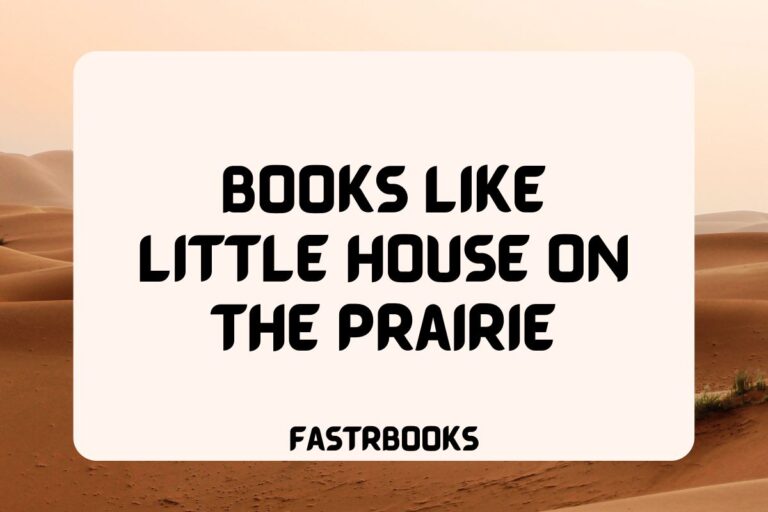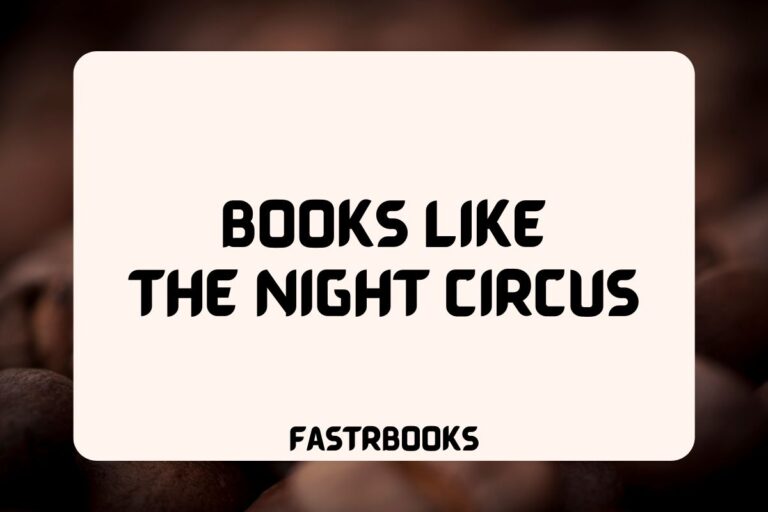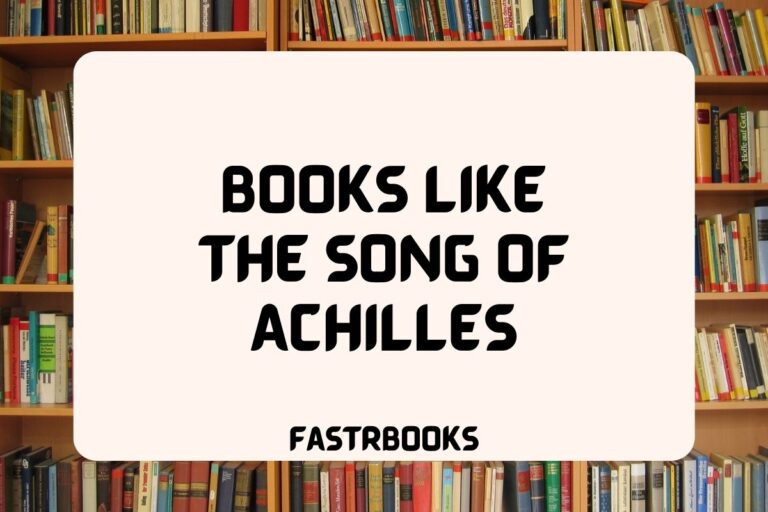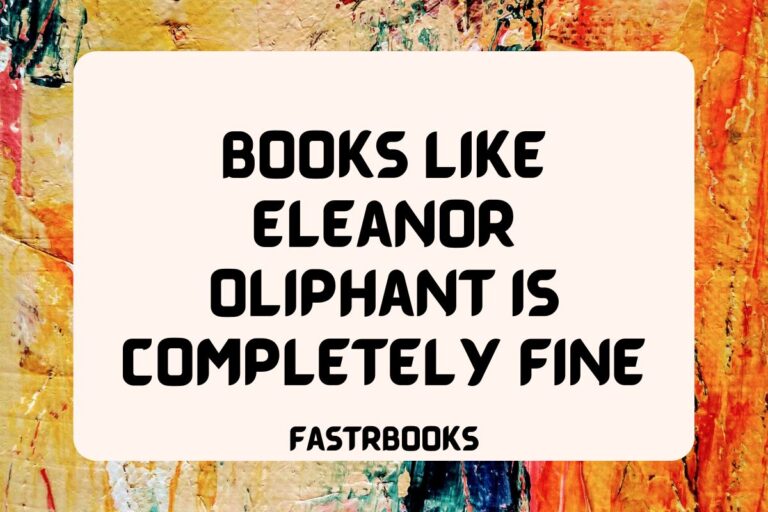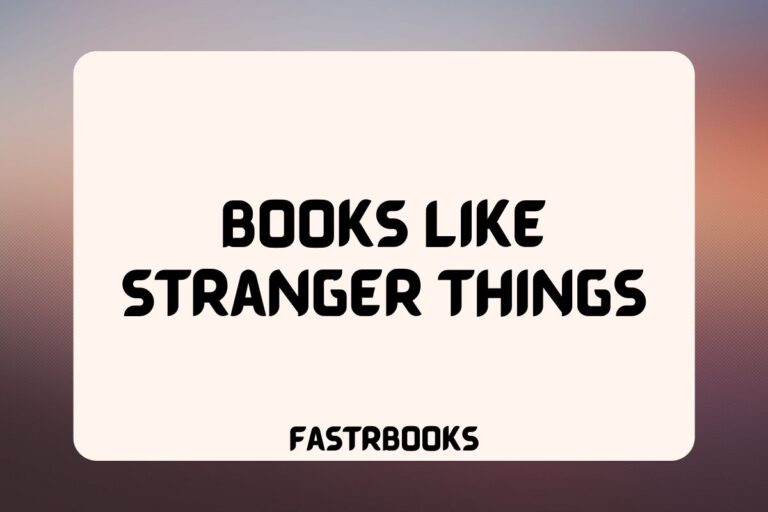20 Books Like The Alchemist

“The Alchemist” – a modern classic by Paulo Coelho explores the themes of destiny, personal legend, and the search for meaning in life.
If you found yourself enchanted by Santiago’s quest for treasure and self-discovery, you’re likely on the lookout for more books that offer a similar blend of mysticism, adventure, and profound insight.
Nothing to worry about, for there are plenty of literary treasures waiting to be discovered that will resonate with fans of “The Alchemist.”
Here’s a handpicked selection of books that share its magical essence and transformative journey, ensuring you embark on an unforgettable exploration of the human spirit.
Books Like The Alchemist
1. Siddhartha by Hermann Hesse
“Siddhartha” follows the spiritual journey of a young man named Siddhartha during the time of the Gautama Buddha. The story explores themes of enlightenment, self-discovery, and the quest for spiritual fulfillment. Siddhartha’s journey takes him through various experiences of wealth, love, and ultimately, to a profound realization about the nature of existence and the path to inner peace.
Major Similarities: Like “The Alchemist,” “Siddhartha” is a powerful tale of self-discovery and enlightenment. Both books emphasize the importance of following one’s path and listening to one’s heart. They delve into the spiritual journey of the protagonist, offering wisdom and insights on finding one’s destiny and the interconnectedness of all life.
2. The Little Prince by Antoine de Saint-Exupéry
This timeless classic tells the story of a young prince who travels from planet to planet, learning about the peculiarities of adult behavior through various encounters. It’s a profound philosophical tale that touches on themes of loneliness, friendship, love, and loss. The simplicity of the story belies its deep insights into human nature and the essence of life.
Major Similarities: “The Little Prince” shares with “The Alchemist” the theme of a journey that leads to wisdom and understanding. Both books are allegorical, using simple narratives to convey deep philosophical and spiritual messages. They remind readers of the importance of seeing with the heart and the essential things in life that are invisible to the eye.
3. The Prophet by Khalil Gibran
“The Prophet” consists of 26 poetic essays and is set as a series of philosophic musings given by a prophet named Almustafa. The book covers topics such as love, marriage, work, freedom, and death, offering profound and timeless insights. It’s celebrated for its poetic beauty and philosophical depth, touching the hearts and minds of readers across the world.
Major Similarities: Both “The Alchemist” and “The Prophet” offer wisdom and guidance on living a fulfilling life. They are philosophical and spiritual in nature, encouraging readers to ponder the deeper aspects of human existence, love, and the pursuit of one’s personal legend.
4. Jonathan Livingston Seagull by Richard Bach
This novel is about a seagull named Jonathan Livingston who is bored with the daily squabbles over food. Seized by a passion for flight, he pushes himself to learn everything he can about flying, and his journey of self-discovery leads to spiritual awakening and enlightenment. The story is a metaphor for the quest for perfection and higher levels of existence.
Major Similarities: Similar to “The Alchemist,” “Jonathan Livingston Seagull” emphasizes the importance of pursuing one’s dreams and the quest for a higher purpose. Both stories inspire readers to break free from conformity and to seek their own paths toward personal freedom and fulfillment.
5. Life of Pi by Yann Martel
“Life of Pi” is a fantasy adventure novel that tells the story of Pi Patel, a young Indian boy who survives a shipwreck and is stranded in the Pacific Ocean on a lifeboat with a Bengal tiger named Richard Parker. The novel explores themes of spirituality, survival, and the essence of storytelling, blending factual realism with magical realism and philosophical inquiry.
Major Similarities: Both “Life of Pi” and “The Alchemist” explore the spiritual and physical journeys of their protagonists, who face trials that test their faith, endurance, and understanding of the world. These stories blend adventure with a deep philosophical exploration of faith, fate, and the power of belief.
6. The Four Agreements by Don Miguel Ruiz
This practical guide to personal freedom draws upon Toltec wisdom, presenting a simple yet effective code of personal conduct learned from ancient Toltec. The book offers a powerful code of conduct that can rapidly transform our lives to a new experience of freedom, true happiness, and love. The agreements are essential messages aimed at leading us to personal freedom and true happiness.
Major Similarities: “The Alchemist” and “The Four Agreements” both emphasize the power of self-discovery, the importance of listening to one’s heart, and following one’s dreams. They provide philosophical insights and practical wisdom on how to live a life that is both fulfilling and aligned with one’s true purpose.
7. The Pilgrimage by Paulo Coelho
In “The Pilgrimage,” Paulo Coelho shares his experiences on the spiritual journey along the Camino de Santiago. The narrative is a blend of adventure, self-discovery, and mystical elements, as Coelho encounters various trials and challenges that test his perseverance and faith. The book is both a journey through Spain and a journey of the soul, exploring the search for meaning and the importance of spiritual awakening.
Major Similarities: Written by the same author as “The Alchemist,” “The Pilgrimage” also explores themes of destiny, the pursuit of one’s personal legend, and the importance of listening to one’s heart. Both books are spiritual journeys that emphasize the significance of overcoming obstacles to achieve one’s dreams and spiritual enlightenment.
8. The Tao Te Ching by Lao Tzu
The “Tao Te Ching” is a fundamental text for Taoism, offering wisdom and insights through poetic verses on the nature of existence, the Tao (the Way), and living in harmony with it. It discusses themes of simplicity, humility, and the paradoxes of life, encouraging a path of peace, balance, and understanding of the natural order.
Major Similarities: Like “The Alchemist,” the “Tao Te Ching” offers profound spiritual insights and guidance on living a life in harmony with the universe. Both texts encourage the reader to seek wisdom through simplicity, introspection, and an understanding of the natural flow of life.
9. Zen and the Art of Motorcycle Maintenance by Robert M. Pirsig
This book is a unique blend of autobiography, philosophical discussion, and narrative about a father-son motorcycle trip across America’s Northwest. It explores the concept of “Quality” in life and art, drawing distinctions between classical and romantic understanding of the world. The book delves into questions of how to live a meaningful life, blending everyday experiences with deep philosophical inquiries.
Major Similarities: Both “Zen and the Art of Motorcycle Maintenance” and “The Alchemist” are about journeys that transcend the physical to delve into philosophical exploration. They examine the nature of life, the pursuit of personal excellence, and the importance of understanding one’s place in the world.
10. Man’s Search for Meaning by Viktor E. Frankl
This book is a memoir and psychological exploration of life in Nazi death camps, with Frankl detailing his psychotherapeutic method of finding a purpose to feel positively about and then immersively imagining that outcome. It’s a testament to the strength of the human spirit in the face of unimaginable adversity and a study on the quest for meaning in life.
Major Similarities: “Man’s Search for Meaning” and “The Alchemist” both address the fundamental human quest for purpose and meaning in life. They encourage resilience, the pursuit of one’s dreams, and the belief that even in the face of great challenges, one can find significance and fulfillment.
11. The Power of Now by Eckhart Tolle
Eckhart Tolle’s guide to spiritual enlightenment encourages readers to live fully in the present moment, free from the chains of the past and the anxieties of the future. It’s a profound exploration of consciousness and the path to living in a state of peace and happiness, emphasizing the transformation that can occur when one fully embraces the now.
Major Similarities: Similar to “The Alchemist,” “The Power of Now” emphasizes the spiritual journey towards enlightenment and the importance of following one’s inner guidance. Both books offer insights into overcoming the obstacles that prevent us from achieving our highest potential and living a life of fulfillment.
12. Ishmael by Daniel Quinn
“Ishmael” is a novel that uses a Socratic dialogue between a gorilla, Ishmael, and his pupil to explore the mythological foundations of civilization and the ways in which these myths have contributed to the current ecological crisis. It’s a profound inquiry into humanity’s place in the world and the possibilities for transforming our relationship with the planet and each other.
Major Similarities: Both “Ishmael” and “The Alchemist” encourage readers to question conventional wisdom and to seek deeper understanding and truth. They challenge readers to think about their role in the world and the impact of their choices, emphasizing a journey of learning and personal growth.
13. The Celestine Prophecy by James Redfield
“The Celestine Prophecy” is a novel that blends adventure and spiritual inquiry, following the journey of its protagonist through Peru to understand and experience nine spiritual insights. The book explores themes of energy, intuition, and synchronicity, suggesting that understanding these insights can lead to a more fulfilling and purpose-driven life.
Major Similarities: Like “The Alchemist,” “The Celestine Prophecy” is an adventure story that serves as a metaphor for the spiritual journey. Both books emphasize the significance of paying attention to the signs along our path and the role of destiny in guiding our lives toward fulfillment and enlightenment.
14. The Art of Happiness by Dalai Lama and Howard Cutler
This book presents the Dalai Lama’s philosophy on how to achieve lasting happiness. Through conversations, stories, and meditations, the Dalai Lama shows how to defeat day-to-day anxiety, insecurity, anger, and discouragement. It explores the concept that happiness is not a gift but a skill that can be developed.
Major Similarities: “The Art of Happiness” and “The Alchemist” both explore the idea that true joy and fulfillment come from within and that they are achievable through understanding ourselves and our place in the universe. They offer practical wisdom and philosophical insights into finding inner peace and happiness.
15. Walden by Henry David Thoreau
“Walden” is a reflection upon simple living in natural surroundings. Thoreau’s experiment of living in a cabin near Walden Pond is a meditation on self-sufficiency, the beauty of nature, and the essential truths of life. He explores themes of simplicity, mindfulness, and the importance of living a life that is true to oneself.
Major Similarities: Both “Walden” and “The Alchemist” emphasize the importance of simplicity, self-discovery, and following one’s own path. They celebrate the beauty of nature and the wisdom it can provide, encouraging readers to seek a deeper connection with the world around them.
16. The Fifth Mountain by Paulo Coelho
Set in the 9th century BC, “The Fifth Mountain” is based on the story of Elijah, a young prophet who is forced to flee his home and take refuge in the land of Zarephath. There, he faces trials and tribulations but ultimately finds his destiny. The novel explores themes of faith, destiny, and the struggle between following one’s heart and succumbing to the will of the gods.
Major Similarities: Written by Paulo Coelho, “The Fifth Mountain” shares with “The Alchemist” the theme of overcoming adversity to fulfill one’s destiny. Both novels highlight the importance of faith and listening to one’s heart in the pursuit of one’s personal legend.
17. Into the Wild by Jon Krakauer
“Into the Wild” is the true story of Christopher McCandless, a young man who gives up his possessions and savings to embark on a journey into the Alaskan wilderness. The book explores themes of adventure, freedom, and the search for meaning outside of the constraints of society. McCandless’s story is a poignant exploration of the desire to live a life that is true and authentic.
Major Similarities: Like “The Alchemist,” “Into the Wild” explores the theme of embarking on a journey to discover one’s true self and purpose. Both stories are about the quest for personal freedom and the importance of following one’s dreams, even at the risk of stepping away from societal norms.
18. The Way of the Peaceful Warrior by Dan Millman
This semi-autobiographical novel tells the story of a young athlete named Dan, who meets a mentor named Socrates and embarks on a journey of spiritual and philosophical discovery. The book combines elements of philosophy, spirituality, and practical advice, offering insights into the challenges of life and the path to becoming a “peaceful warrior.”
Major Similarities: “The Way of the Peaceful Warrior” and “The Alchemist” share themes of mentorship, personal growth, and the search for a deeper understanding of life. Both stories emphasize the importance of overcoming internal and external obstacles to achieve a state of peace and fulfillment.
19. The Monk Who Sold His Ferrari by Robin Sharma
This fable about fulfilling your dreams and reaching your destiny tells the story of Julian Mantle, a successful lawyer forced to confront the spiritual crisis of his out-of-balance life. Through a series of conversations and experiences, Julian discovers a powerful system to unleash his potential and live with passion, purpose, and peace.
Major Similarities: Similar to “The Alchemist,” “The Monk Who Sold His Ferrari” is a story about transformation, self-discovery, and the pursuit of one’s true calling. Both books offer inspiration and guidance for those seeking to live a more meaningful and fulfilled life.
20. The Untethered Soul by Michael A. Singer
“The Untethered Soul” offers a straightforward, profoundly intuitive answer to the individuals looking for personal growth and spiritual enlightenment. It explores the idea of self-awareness and the journey to letting go of limiting beliefs, freeing oneself from habitual thoughts and emotions, and embracing the path of self-realization and inner peace.
Major Similarities: Both “The Alchemist” and “The Untethered Soul” emphasize the importance of self-awareness and the journey towards spiritual enlightenment. They guide readers in exploring the inner self, overcoming obstacles, and achieving a state of peace and fulfillment.


